News
Is a successful mutiny possible in Russia?
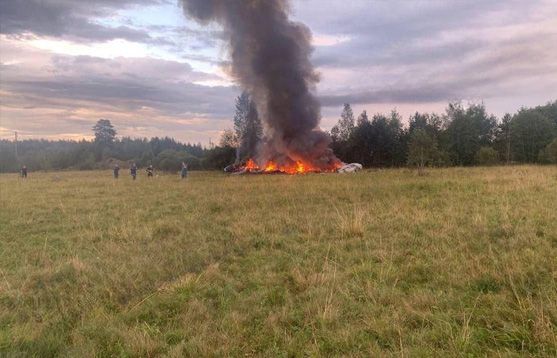
Introduction
On August 23, at approximately 18:20 Moscow time, a private business jet - Embraer Legacy 600, owned by a company associated with Yevgeny Prigozhin and heading from Moscow towards St. Petersburg, crashed into the ground, killing all passengers on board. According to the Russian Federal Aviation Agency (Rosaviatsiya), all passengers – Yevgeny Prigozhin, Dmitry Utkin, Sergei Propustin, Yevgeny Makaryan, Alexander Totmin, Valery Chekalov, Nikolai Matyuseev – and three crew members died in the crash.[1] A local witness claimed that an UAV, which later turned out to be Prigozhin's plane, was shot down by two air defence (AD) missiles.[2] A prominent Russian military blogger claimed that Prigozhin's plane was shot down by two S-300 missiles, launched from a nearby S-300PS air defence system.[3] Regardless of the fact that it has not been confirmed that Prigozhin's plane was destroyed by the Russian AD, this is one of the most likely ways the plane was destroyed. If Prigozhin's aircraft was indeed destroyed by an onboard bomb or some other means, this does not significantly change the current analysis and assessment of SensusQ.
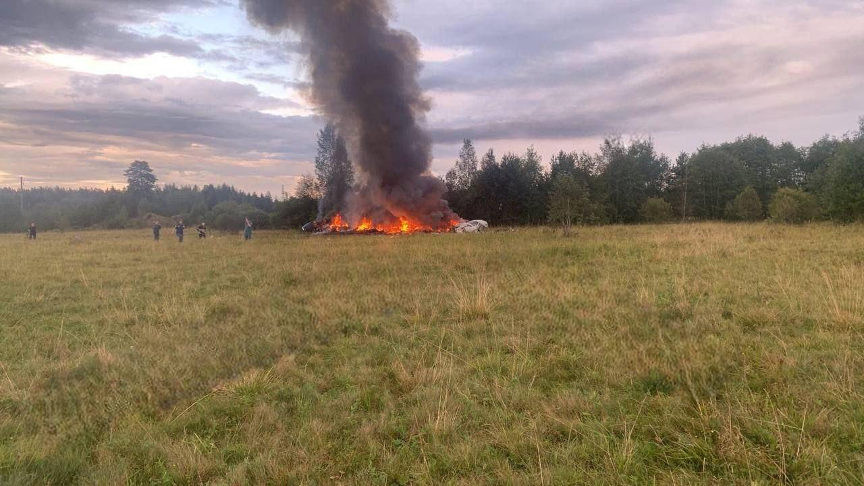
Vladimir Putin’s motivation for the elimination of Yevgeny Prigozhin.
Since last fall, Yevgeny Prigozhin had been publicly sparring with Defense Minister Sergei Shoigu and Chief of the General Staff Valery Gerasimov over their failures in the Ukraine Special Military Operation. Then in late June, Prigozhin publicly challenged the official justification for the February 2022 invasion of Ukraine – at least an indirect shot at Putin – and launched his mutiny, taking control in Rostov-on-Don and sending his troops to Moscow. Although high-ranking Russian officials denounced this as treason, within twenty-four hours the Kremlin struck a deal that convinced Prigozhin to end his march on Moscow in exchange for safe passage to Belarus. This deal humiliated Putin and demonstrated that he is certainly not as strong and powerful leader as he was thought to be before the Wagner rebellion.
Putin's behaviour during the rebellion may have raised concerns in his inner circle about his ability to sustain his regime, and CIA Director William Burns echoed similar observations about Putin's judgment and his detachment from events. Burns also noted that "Putin is the ultimate apostle of payback"[4], and it is likely that Putin was waiting for the right conditions to finally take revenge on Prigozhin without appearing impulsive or overreacting. Putin needed demonstrative revenge against Prigozhin not only to prove that he is not a weak leader, but also to support his military, which many Russians felt did not see justice in the events of June 24.
So when it became clear that Wagner's rebellion had failed, it also became abundantly clear that Prigozhin and Wagner's top aides who participated in the mutiny against the Russian state would be punished. The liquidation of Yevgeny Prigozhin was almost certainly going to happen, the only question was when and how.
Following the Wagner armed mutiny, the Kremlin reportedly ordered the detention and removal of several senior officers in an effort to purge the MoD of perceived disloyal figures. The Wall Street Journal (WSJ) reported on July 13 that in the aftermath of the Wagner’s armed mutiny, Russian authorities detained at least 13 high-ranking officers and suspended or fired about 15 senior officers. Russian authorities reportedly detained Wagner-affiliated Deputy Commander of Russian Forces in Ukraine Army General Sergei Surovikin, former Russian Deputy Defense Ministry for Logistics Colonel General Mikhail Mizintsev and other unnamed senior officers. It is also reported that the Russian authorities detained and then released Surovikin's deputy, Colonel General Andrey Yudin, and deputy head of Russian General Staff’s Main Directorate (GRU) Lieutenant General Vladimir Alexeyev. According to the WSJ, one source claimed that these detentions were intended to "clean ranks" of those whom Putin no longer considered trustworthy.[5]
After the Russian MoD was cleared of disloyal figures, the conditions were set to deal with Yevgeny Prigozhin and the Wagner leadership. The best opportunity presented itself August 23, when Yevgeny Prigozhin, Dmitry Utkin and Valery Chekalov were on the same plane on their way from Moscow to St. Petersburg. Putin’s almost certain order to destroy Prigozhin’s plane is likely a public attempt to reassert his dominance and avenge the humiliation inflicted on Putin and the Russian MoD by the Wagner armed rebellion. Exactly two months have passed since the armed mutiny, during which Wagner forces shot down several Russian helicopters and killed at least 13 Russian service members. The decision that the assassination of Prigozhin would be carried out by Russian AD allowed the Russian MoD to directly avenge one of the deadliest days for Russian aviation since the start of a full-scale invasion of Ukraine.
Moreover, Putin’s assassination of the Wagner leadership has made it very clear that the Kremlin will deal harshly with those who seek independence of their own parallel military structures. Putin’s demonstrative killing of the Wagner leadership was meant to reaffirm his dominance and avenge the humiliation caused by the Wagner uprising, and serve as a warning to individuals in the Kremlin, MoD, and PMC who may have planned to oppose Putin. The Kremlin will likely view any future efforts to establish independent parallel military structures explicitly through the prism of its experience with Wagner and Prigozhin. The assassination of the Wagner leadership is likely to serve as a standing threat to those who intend to create parallel military structures reminiscent of Wagner.
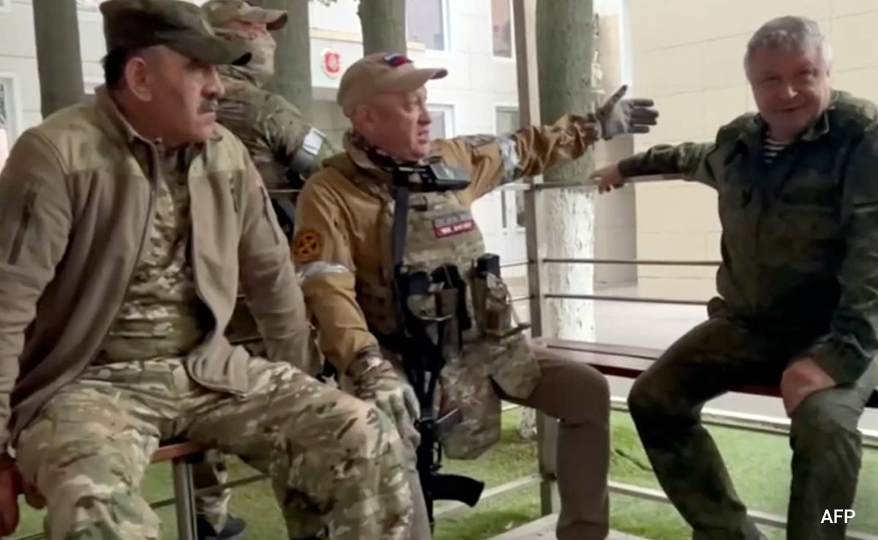
The importance of the Russian army's loyalty to the Russian leadership
On 29 May, Yevgeny Prigozhin declared that his mercenary forces could not topple the Kremlin because they lacked the manpower, after former Russian military commander Igor Girkin said they wanted to do so. There have been many types of coups in the world, but armies have always been involved, said Prigozhin. He vaguely hinted that Russian Defence Minister Sergei Shoigu could stage a coup as he controls the Russian Army.[6]
SensusQ has previously assessed that Yevgeny Prigozhin may have inadvertently discovered on May 29 why he so vehemently accused Defense Minister Sergei Shoigu and Chief of the General Staff Valery Gerasimov and tried to replace them with people loyal to him. Prigozhin knew that while Wagner was the most powerful private army in Russia, it was not powerful enough to take over the Kremlin as long as Russian army was controlled by Putin loyalists Shoigu and Gerasimov. But if the Russian army had been controlled by Mizintsev and Surovikin, loyal to Prigozhin, a coup would have been possible. Perhaps that was why Prigozhin decided to launch a desperate act on 23 June in an attempt to get the Russian military leadership replaced with his own loyalists and get one step closer to his ultimate goal – seizing power in the Kremlin.[7]
It has previously been assessed that Vladimir Putin values loyalty above all else. Regardless of the fact that during Prigozhin's "march for justice" on June 23-24, the Russian MoD did not demonstrate effectiveness in suppressing the rebellion, it remained loyal to Putin, and this may have been one of the factors that prompted Prigozhin to accept Putin's proposal and stop the march on Moscow. Most likely, Prigozhin understood that reaching the outskirts of Moscow and breaking through the entire city to the Kremlin were not actions of equal complexity. Regardless of the fact that Prigozhin had allies in the MoD, the majority of the MoD remained on the side of Shoigu and Gerasimov, and therefore Prigozhin realised the futility of his rebellion.
In addition to Prigozhin, Russian milbloggers have blamed high-ranking military officers for Russia's failures in the war with Ukraine. A number of high-ranking generals have been appointed and dismissed from Russian command posts, but Shoigu and Gerasimov have remained intact despite the enormous criticism directed at them. Most likely, Shoigu and Gerasimov realize that they owe this solely to Putin, and it is in their interest that Putin remains in power, as any successor to Putin could easily make Shoigu and Gerasimov scapegoats for the Russian army's failures in Ukraine.
Thus, the circle is closed: while on the one hand Putin saves Shoigu and Gerasimov due to their loyalty, on the other hand Shoigu and Gerasimov are forced to be loyal to Putin in order not to become scapegoats for the failure of the Ukrainian war. Therefore, SensusQ estimates that regardless of the pace of the war in Ukraine, Shoigu and Gerasimov will remain in their posts as long as Putin remains president of Russia and as long as they can control the Russian army.
How long will Shoigu and Gerasimov be able to control the Russian Army?
On January 24, the UK Ministry of Defense announced the likely dismissal of Colonel General Mikhail Teplinsky as one of Russia's key operational commanders in Ukraine. There was a realistic possibility that debate over the tasks that were assigned to the Airborne (VDV) Troops contributed to his dismissal: the VDV Troops were often used to hold terrain traditionally assigned to mechanized infantry. Teplinsky's dismissal was likely another symptom of ongoing divisions within the senior hierarchy of Russia’s operation, as General Valery Gerasimov attempted to impose his personal authority over the campaign, the UK Ministry of Defense reported.[8]
On July 12, an audio message from the former commander of the 58th Combined Arms Army, Major General Ivan Popov, was leaked in which he claimed that the Russian command dismissed him for expressing grievances over the lack of support for Russian troops and replaced him with Lieutenant General Denis Lyamin. Popov claimed that he expressed concerns to the “highest level” of Russian command over the lack of Russian counter-battery warfare capabilities, the absence of artillery reconnaissance stations, significant Russian casualties from Ukrainian artillery fire, and other issues. Popov claimed that Shoigu fired him because his honesty in voicing various problems in the Russian armed forces threatened the Russian command. Popov claimed that he chose to “call a spade a spade” in the name of his dead comrades instead of “remaining in silent cowardice”.[9]
On July 13, as mentioned above, the Kremlin ordered the detention and suspension of 28 military officers following the armed mutiny of the Wagner , intending to purge the MoD of disloyal figures.[5]
On July 15, the Russian military command dismissed Major General Vladimir Seliverstov, commander of the 106th Guards VDV Division. Russian sources stated that the reason for Seliverstov’s dismissal was unknown but suggested that it could have been associated with Seliverstov’s reputation for standing up for his soldiers.[10]
As we can see, the top Russian military leadership has not hesitated to dismiss anyone who had dared to oppose their will or had been suspected of disloyalty. Generals Teplinsky, Surovikin, Popov, and Seliverstov were respected and experienced military commanders, but this did not outweigh the lack of loyalty, which apparently has been the most valuable character trait of the Russian military.
Russian Milbloggers have expressed concerns that continued outspoken dissatisfaction from senior Russian commanders in the aftermath of Wagner's armed uprising could set a precedent for armed protests by Russian troops.[11][12] Prominent Russian milblogger and former Russian officer Igor Girkin has cynically stated that Russian forces are just one major military defeat away from conventional Russian troops conducting their own march on Moscow.[13]
The Russian MoD is reportedly prosecuting junior officers and soldiers from a Russian unit that complained about the inattention of senior commanders to frontline issues, following a MoD pattern of deflecting blame away from senior officers. On August 26, Russian milbloggers claimed that an assistant to an unspecified Russian deputy defence minister arrived in Kherson Oblast to investigate complaints associated with the 205th Motorized Rifle Brigade (49th CAA) that sparked outrage within the Russian information space on August 25. Milbloggers claimed that the Russian MoD official was protecting the 205th Brigade’s commander and punishing protesting company commanders.[14][15][16]
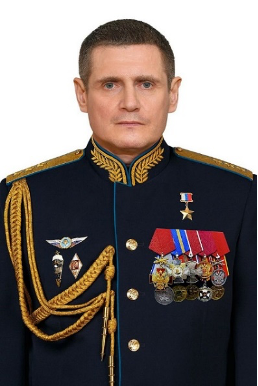
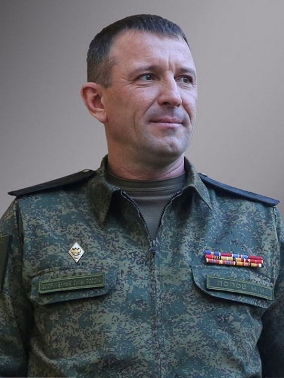
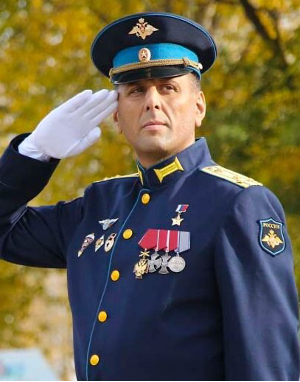
Conclusion
The Russian military has recently faced numerous public incidents of insubordination at various levels, and the Russian military chain of command is deteriorating. The speed with which the Russian military command responds to cases of insubordination likely reflects its deep concern about insubordination in the military, as well as criticism of the Russian military command from the public. The Russian MoD has shown a tendency to shift blame away from senior officers loyal to the top leadership and place responsibility for problems on lower-ranking soldiers.
Despite the fact that Russian milbloggers have warned of an armed uprising of conventional troops, so far there has been no sign of coordination among disgruntled commanders, nor any desire to march on Moscow. Moreover, the immediate dismissal of disobedient commanders does not even provide an opportunity to unite the dissatisfied into one combat-ready unit that could organise and carry out such a mutiny, as Prigozhin's Wagner group did.
As we have seen, Vladimir Putin retains Defense Minister Sergei Shoigu and Chief of General Staff Valery Gerasimov due to their loyalty. On the other hand, Shoigu and Gerasimov are forced to be loyal to Putin.
SensusQ estimates that regardless of the pace of the war in Ukraine, Shoigu and Gerasimov will remain in office as long as Putin remains president of Russia and as long as they can control the Russian army. Moreover, because of the immediate reaction to any instance of insubordination, it is unlikely that in the foreseeable future a force will emerge in Russia capable of overcoming the Russian army controlled by Gerasimov and Shoigu and shaking the position of President Putin.
REFERENCES
[1] РИА Новости: Росавиация публикует полный список летевших на Embraer, упавшем в Тверской области. Aug 2023. [Online] t.me/rian_ru/213016
[2] Baza: Видео падения самолёта в Тверской области. Aug 2023. [Online] t.me/bazabazon/20765
[3] ВЧК-ОГПУ: Предположительно самолет Пригожина был сбит двумя ракетами С 300. Aug 2023. [Online] t.me/vchkogpu/41166
[4] Putin is trying to buy time with Prigozhin but will get revenge since he is the 'ultimate apostle of payback,' CIA director William Burns says. Jul 2023. [Online] businessinsider.com/putin-will-get-his-revenge-prigozhin-cia-director-burns-says-2023-7
[5] Russia Detained Several Senior Military Officers in Wake of Wagner Mutiny. Jul 2023. [Online] wsj.com/articles/russia-detained-several-senior-military-officers-in-wake-of-wagner-mutiny-35a696e4
[6] Пресс-служба Пригожина. #1707 Jun 2023. [Online] t.me/concordgroup_official/1084
[7] SensusQ analysis: Why Yevgeny Prigozhin started his “march for justice”? Jun 2023 [Online] sensusq.com/blog/7d0d4d36-405c-42c1-b7f8-e237cf2ac103
[8] UK Ministry of Defence. Jan 2023. [Online] twitter.com/DefenceHQ/status/1617785717383364612
[9] Андрей Гурулев / депутат Государственной Думы: Обращение командующего 58-й общевойсковой армией Южного военного округа ВС России генерал-майора Ивана Попова к своим воинам. Jul 2023. [Online] t.me/agurulev/3424
[10] Военный Осведомитель: Сообщается, что генерал-майор Владимир Селиверстов был отстранен от должности командира 106-й гв. воздушно-десантной дивизии ВДВ. Jul 2023. [Online] t.me/milinfolive/103595
[11] БРИФ МОСКВА: Отстранение генерал-майора Ивана Попова от командования 58 армией, успешно сдерживающей наступление ВСУ на запорожском направлении крайне негативно воспринято в передовых частях. Jul 2023. [Online] t.me/rusbrief_moscow/12024
[12] Военный Осведомитель. Jul 2023. [Online] t.me/milinfolive/103476
[13] Стрелков Игорь Иванович: Обращение отставленного командарма к общественности … Jul 2023. [Online] t.me/strelkovii/6021
[14] Romanov Лайт: Херсонская область, Россия. Aug 2023. [Online] t.me/romanov_92/41491
[15] Роман Алехин: Дорогие камрады Роман Сапоньков, Тринадцатый, Романов, а также Два майора. Aug 2023. [Online] t.me/Alekhin_Telega/7782
[16] Роман Сапоньков: По 205 бригаде ходят мрачные слухи, что получился выпуск кривого зеркала. Aug 2023. [Online] t.me/RSaponkov/5843